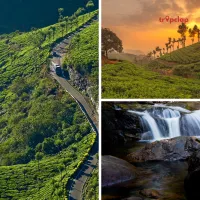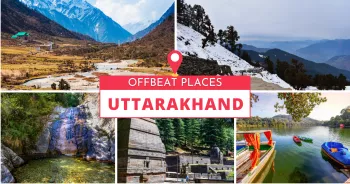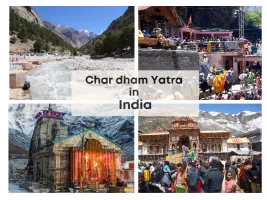What is Ecotourism? Eco tourism destinations in India
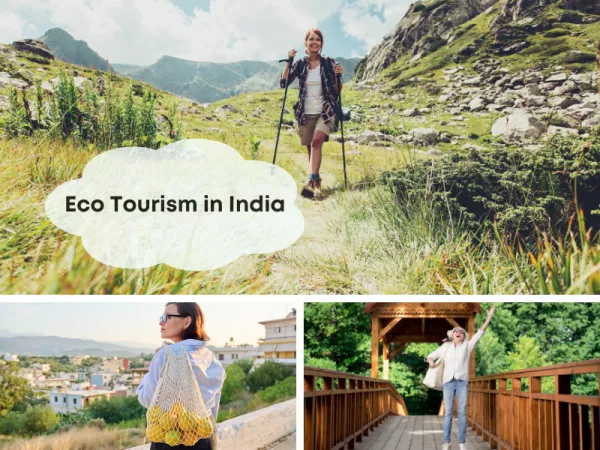
Ecotourism is a form of sustainable tourism that focuses on conserving natural environments and promoting the well-being of local communities. It is a type of travel that is responsible and mindful of the impact it has on the environment and the people who live in the destination.
The goal of ecotourism is to provide travelers with an opportunity to experience and appreciate the natural world while also supporting conservation efforts and benefiting the local economy.
This type of tourism promotes responsible travel practices, including minimizing waste and pollution, reducing carbon emissions, and respecting local cultures and traditions.
Ecotourism destinations often include national parks, wildlife reserves, and other protected areas where visitors can observe wildlife in their natural habitats and learn about conservation efforts.
Activities may include hiking, birdwatching, whale watching, kayaking and other outdoor adventures that allow travelers to connect with nature.
One of the key aspects of ecotourism is the emphasis on community involvement and benefit. Local communities are often involved in the planning and management of ecotourism projects, and tourism revenue is reinvested in community development programs. This can include supporting local businesses, providing education and training opportunities, and promoting cultural preservation.
Ecotourism also places a strong emphasis on environmental sustainability. Tour operators and accommodations are encouraged to implement sustainable practices such as using renewable energy sources, reducing waste and water usage, and preserving natural habitats and biodiversity.
Overall, ecotourism is a form of responsible travel that aims to promote sustainable development and protect the natural environment.
By supporting ecotourism, travelers can help to conserve biodiversity and support local communities while also experiencing the beauty and wonder of nature in a responsible and ethical way.
Suggested read
Tripclap: Promoting Sustainable Travelling By Leveraging Cutting-Edge Technologies
Sustainable tourism and eco travelling
 View Gallery - 3
View Gallery - 3 Eco-traveling is a type of travel that is focused on exploring and experiencing natural environments while promoting sustainability and environmental conservation. It involves visiting natural areas, such as forests, mountains, and wildlife reserves, and engaging in outdoor activities that allow travelers to connect with nature.
How to promote eco tourism in India
Renowned destinations for Eco-tourism in India
 View Gallery - 3
View Gallery - 3 - Periyar National Park, Kerala:
- Sundarbans, West Bengal:
- Kaziranga National Park, Assam:
- Khangchendzonga National Park, Sikkim:
- Valley of Flowers, Uttarakhand:
- Agumbe Rainforest, Karnataka:
- Andaman and Nicobar Islands:
- Rann of Kutch, Gujarat:
- Hemis National Park, Ladakh:
- Gir National Park, Gujarat:
These destinations not only offer breathtaking natural beauty but also emphasize the importance of sustainable and responsible tourism practices to preserve India's diverse ecosystems.
Places to visit in Kerala
( 21 Reviews )
( 389 Reviews )
( 389 Reviews )
( 389 Reviews )
( 5 Reviews )
( 5 Reviews )
( 5 Reviews )
( 21 Reviews )
( 5 Reviews )
( 108 Reviews )

Debalina Deb Roy
Frequenty Asked Questions
1. What is Ecotourism?
2. Why is Ecotourism Important?
3. How Does Ecotourism Differ from Traditional Tourism?
4. What Are Examples of Ecotourism Activities?
5. How Can Travelers Support Ecotourism?

Tell us about your trip

Get Custom quotes from top agents.

Choose the package you like
• Ca Mau • Imphal • Zadar • Almora • Koh Si Chang • Yusmarg • Aalo • Istanbul • Kumily • Pelling • Pangkor Island • Darjeeling • Malshej Ghat • Mui Ne • Chail • Alwar • Goa • Dubare • Ao Nang • Halong Bay • Yinchuan • Chandel • Sundarban National Park • Hazaribagh • Ranthambore • Paro • Rajgir • Vienna • Shah Alam • Jaipur • Rajabhatkhawa • Anand • Patna • Rovinj • Quy Nhon • Ludhiana • Bangalore • Nandi Hills • Omkareshwar • Vijayawada • Golden Triangle • Ratnagiri • Sawantwadi • Lyon • Bandipur National Park • Horanadu • Ajanta and Ellora Caves • Pula • Kanatal • Pondicherry
Kashmir Tour Packages Andaman Tour Packages Kerala Tour Packages Shimla Tour Packages Manali Tour Packages Sikkim Tour Packages Uttarakhand Tour Packages Rajasthan Tour Packages Chardham Tour Packages Gujarat Tour Packages Rameswaram Tour Packages Gangtok Tour Packages Goa Tour Packages Jaipur Tour Packages Ooty Tour Packages Jim Corbett Tour Packages Mussoorie Tour Packages Kanyakumari Tour Packages Meghalaya Tour Packages Ladakh Tour Packages
Dubai Tour Packages Bali Tour Packages Singapore Tour Packages Thailand Tour Packages Maldives Tour Packages Bhutan Tour Packages Vietnam Tour Packages Mauritius Tour Packages Nepal Tour Packages Europe Tour Packages Sri lanka Tour Packages Turkey Tour Packages Malaysia Tour Packages Azerbaijan Tour Packages





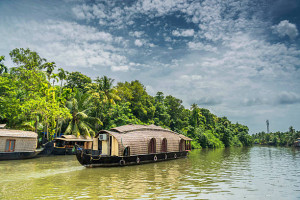

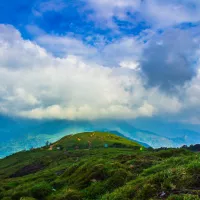
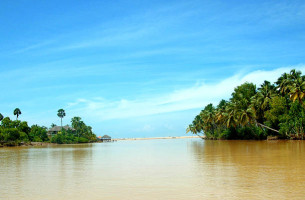





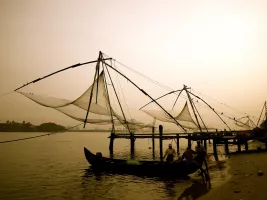


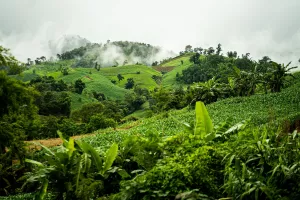


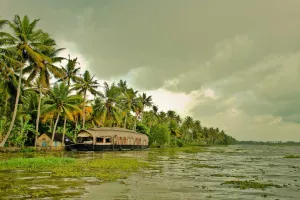







 May
May June
June July
July August
August September
September October
October November
November December
December January
January February
February March
March April
April

